Canon began teasing us about the EOS R5 back in February which, on hindsight, seems so long ago. However, we've been told that good things come to those who wait and, if rumors are to be believed, that wait is nearly over.
The highly anticipated mirrorless marvel is reportedly going to be announced on July 9, with Canon scheduling a livestream for its "biggest product launch yet" on that date.
The EOS R5 probably won't be the only camera that arrives in early July either. The rumors suggest it'll be jointly announced with the much-rumored Canon EOS R6, another full-frame camera that's reportedly the R5's more affordable sibling.
But while the EOS R6 is probably the most realistic option for non-professionals, it's the Canon EOS R5 that promises to truly break new ground for Canon and mirrorless cameras in general. Following the sad news that Olympus is exiting the camera business, it could be the glimpse of the future that photographers of all stripes need right now.
So what do we know about the EOS R5 so far and can it really live up to its early promise? The signs are certainly positive – with the ability to shoot uncropped 8K video and up to 20fps stills in burst mode, it's likely to be the most powerful hybrid camera we've seen so far.
The EOS R5's pricing and sensor are yet to be confirmed, but it sounds like we won't have to wait long to discover the final details.
- New Canon EOS R5 video specs confirm it’ll be a game-changer – here’s why
- Mirrorless vs DSLR: 10 key differences
- The 10 best mirrorless cameras available right now
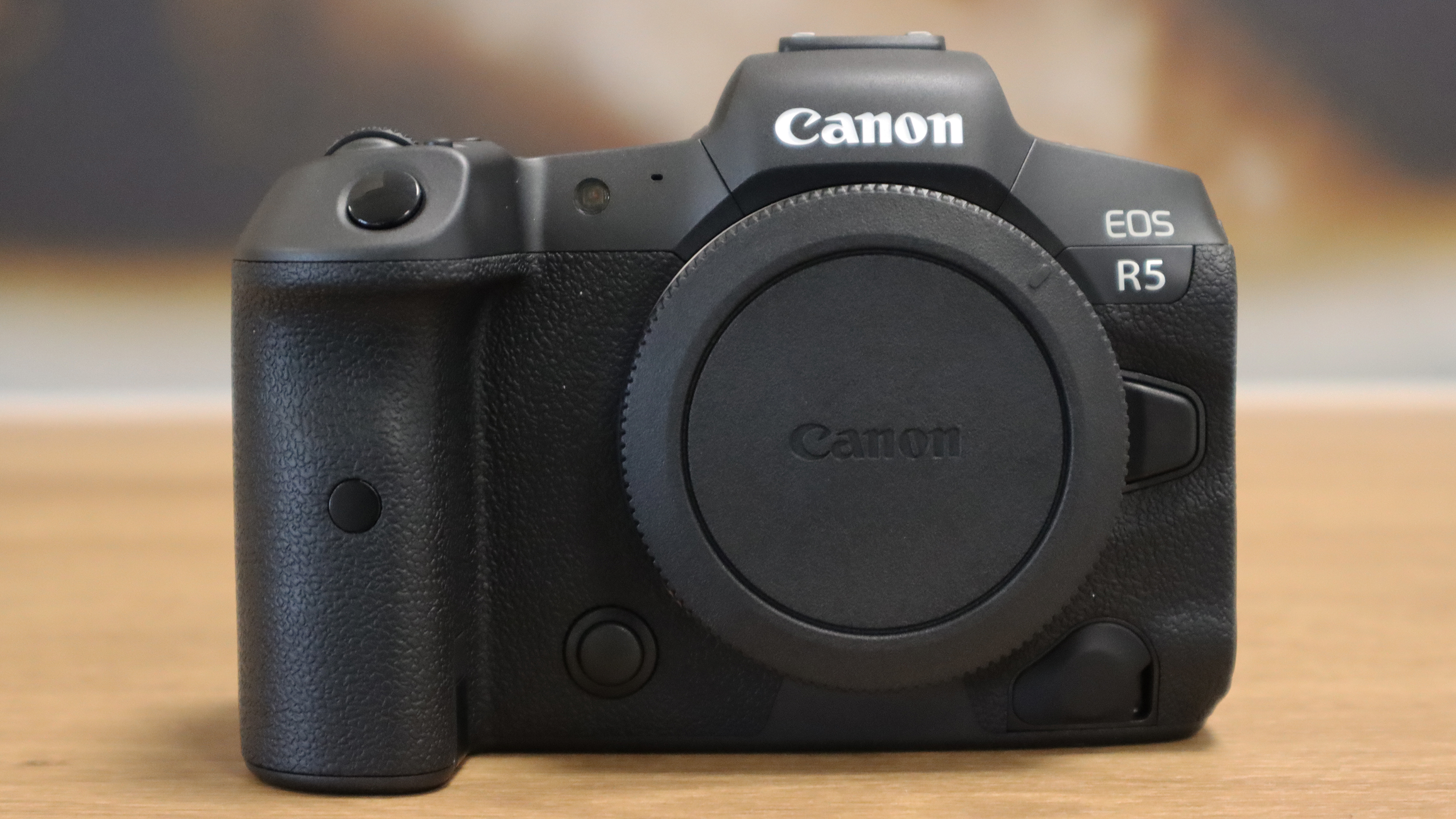
Still, what we do know sounds very promising indeed. The Canon EOS R5 will be the first Canon camera to come with in-body image stabilization (IBIS), and it'll also cram other advanced features like Dual Pixel AF and a Digic X processor into a body that's not much bigger than the Canon EOS R.
Of course, big questions still remain. How will that small body handle heat issues when shooting in processor-intensive video modes? And will the rumored Canon EOS R6, which is expected to be launched at the same time in early July, actually be the better camera for most people?
Here are all the latest rumors, along with our in-depth analysis, on the Canon EOS R5, a camera that could set a new mirrorless bar for the likes of Sony, Nikon and Fujifilm.
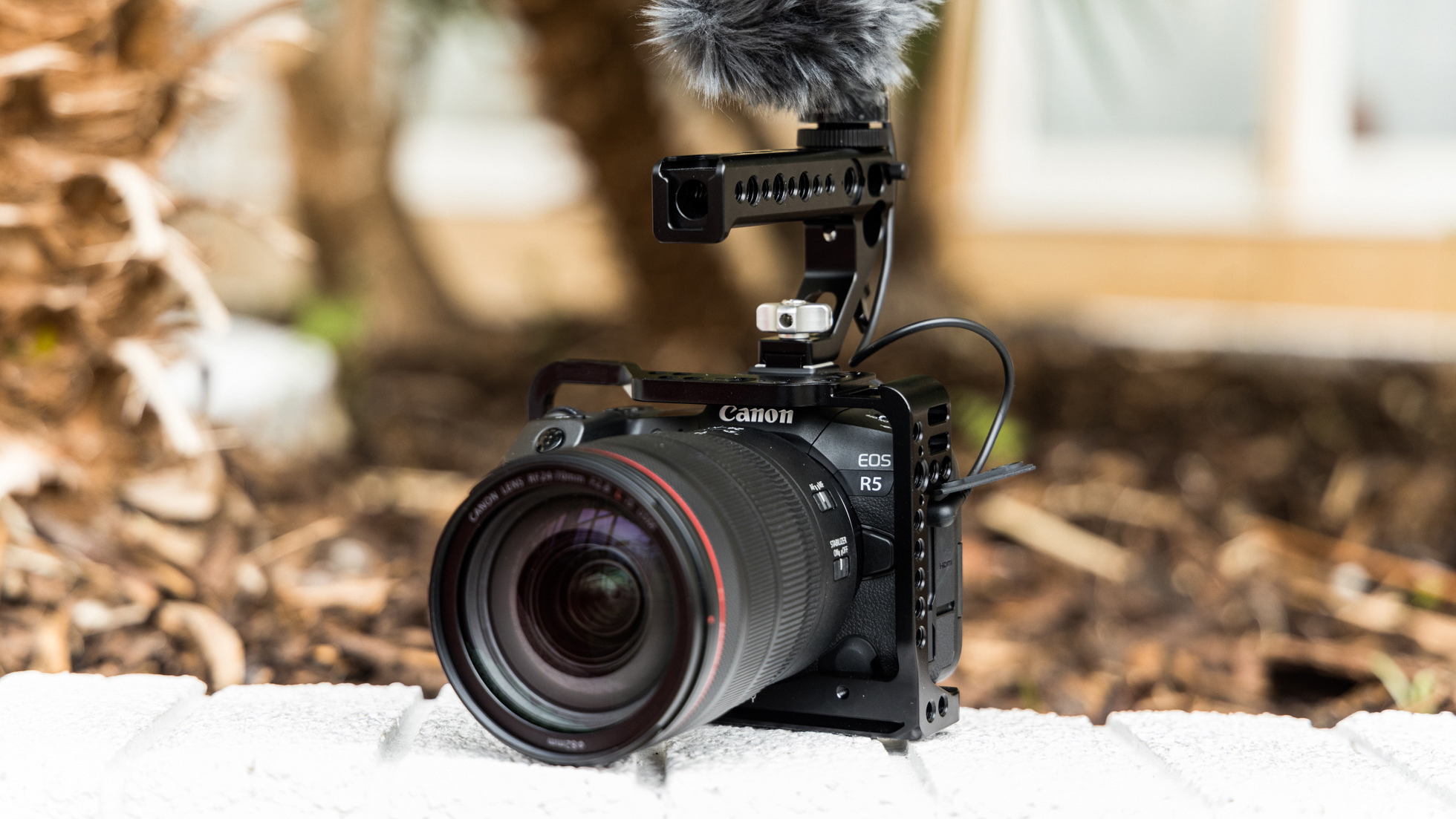
Canon EOS R5 release date, news and features
Canon EOS R5 release date and price
Canon Rumors, which has so far been a very reliable source of news for the launch, is now very confident that the Canon EOS R5 will be announced in joint unveiling with the Canon EOS R6 on July 9. This could well be true as Canon has announced that a major product reveal has been scheduled for that date via a livestream that fans can sign up for.
In what would be the biggest camera launch for some time, the two cameras will also apparently be unveiled with six new RF lenses: the Canon RF 50mm f/1.8 IS STM, RF 70-200mm f/4L IS USM, RF 85mm f/2 Macro IS STM, RF 100-500mm f/4-7.1L IS USM, RF 600mm f/11 DO IS STM and RF 800mm f/11 DO IS STM. Phew.
Before you put your car up for sale, it's also looking highly unlikely that either camera will ship immediately after launch. The situation is apparently changing all the time, but Canon Rumors says that its sources have said that the Canon EOS R5 "won't begin shipping till September".
That would potentially be after the EOS R6, which is expected to "ship in August". The best way of getting official updates on shipping, though, is likely to be by registering your interest on Canon's official EOS R5 page.
What about pricing? A recent apparent 'leak' from an Australian retailer recently caused some concern among prospective EOS R5 buyers. This is because Camera Warehouse had it listed for AU$10,499, which converts to around $6,800 / £5,550.
Luckily, this has since been replaced by a $200 holding deposit and a number of different sources, including Canon Rumors, are confident that it's incorrect.
That kind of price would put the EOS R5 up with professional flagships like the Canon EOS 1D X Mark III and the Nikon D6, which seems unlikely for a consumer camera, no matter how high end.
We'd expect it to be more in line with the 45.7MP Nikon Z7 or 61MP Sony Alpha A7R IV, which means you can expect to shell out at least $3,500 / £3,500 / AU$4,500.
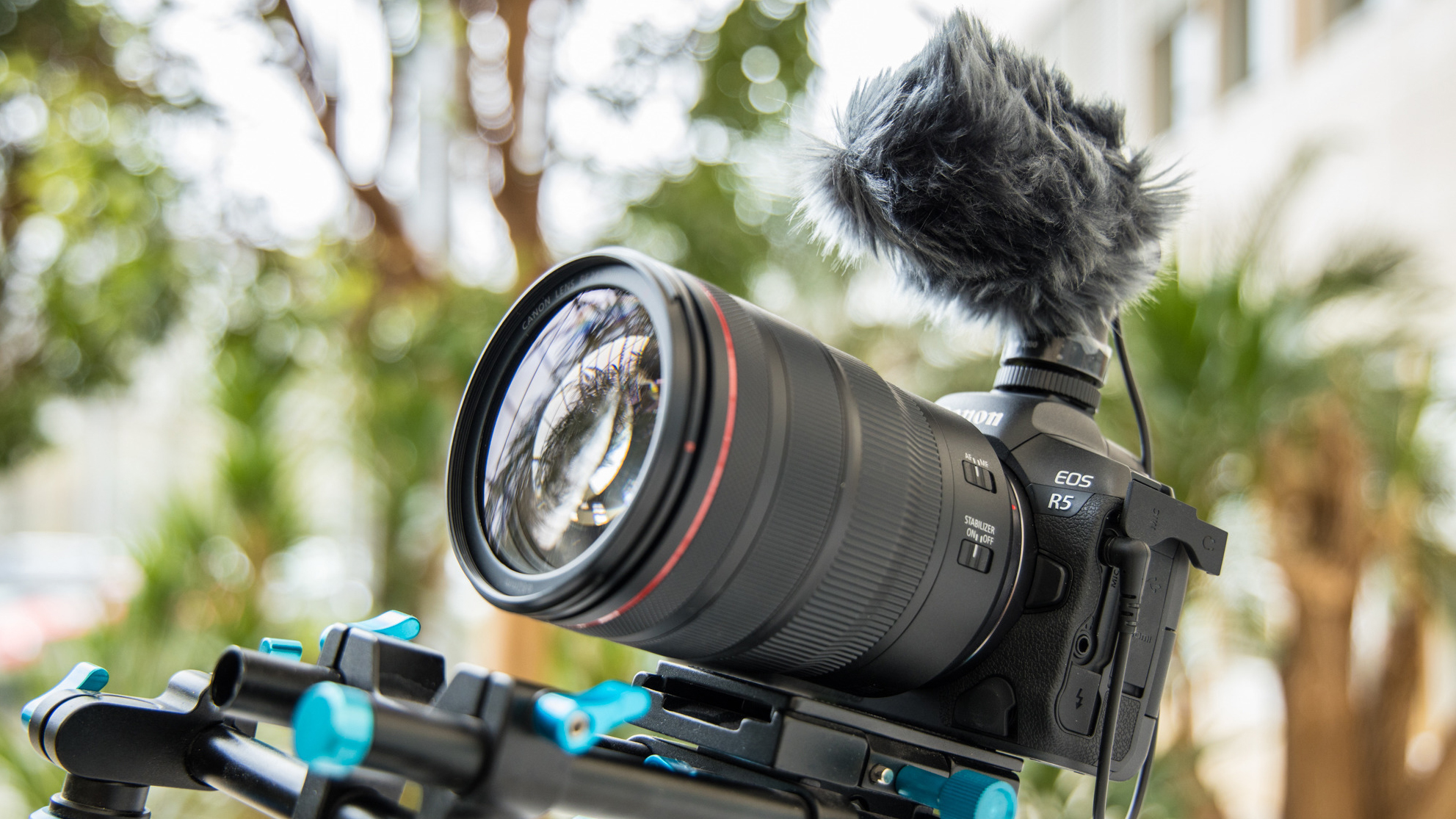
Canon EOS R5: design
While we haven't yet seen a working Canon EOS R5, we have now seen one in the flesh – and it's clearly very much based on the original EOS R.
Still, there are few differences. The contentious multi-function bar on the back of the camera hasn't made the leap to the new camera – instead, it'll have a more traditional scroll wheel.
Talking about the button layout on the rear – we were curious to see whether the Smart Controller introduced in the EOS 1DX Mark III (to speed up focus point selection) had made its way to the R5, but it sadly hasn't. That's a shame, as we reckon it's a brilliant bit of innovation from Canon.
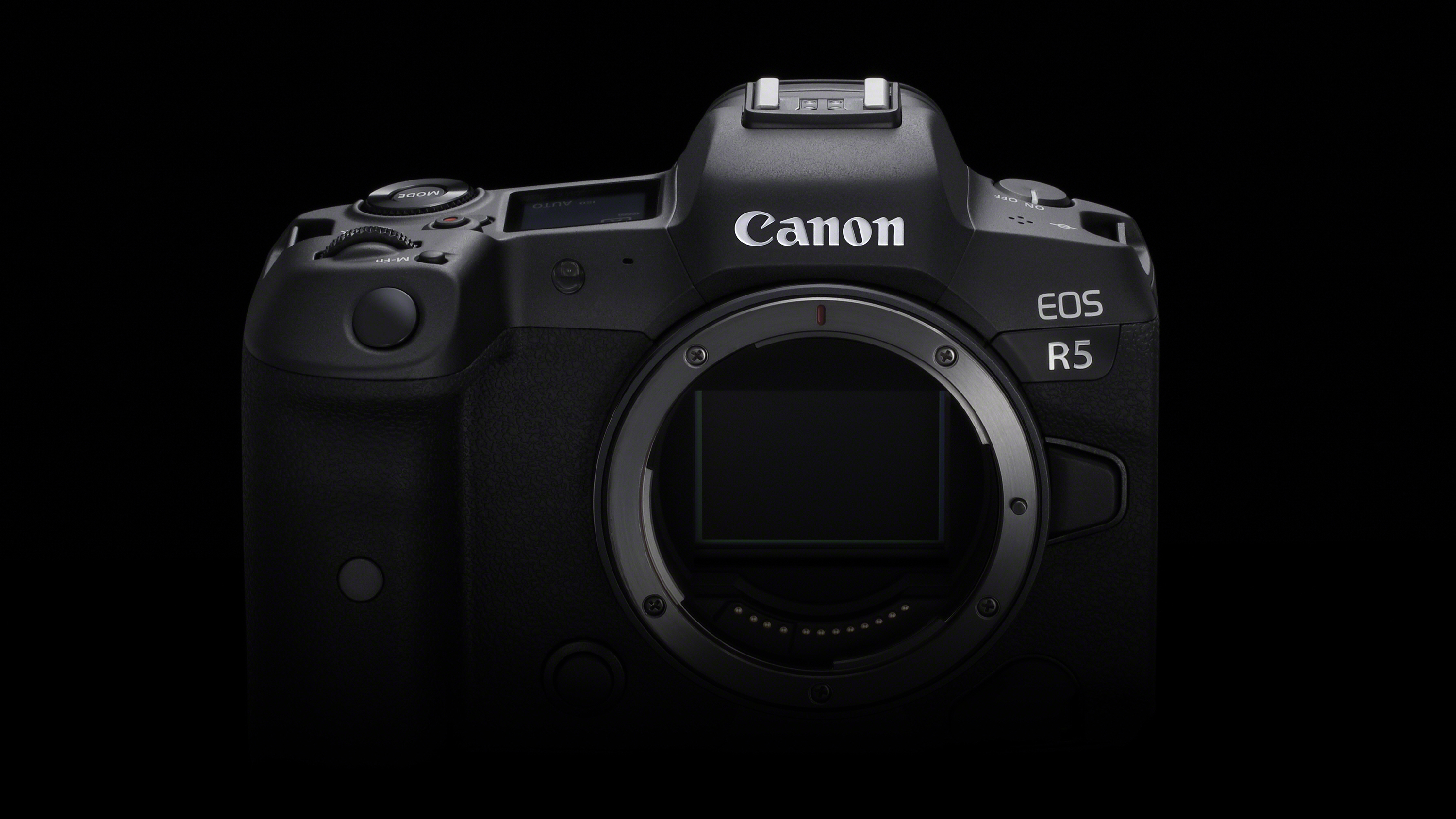
Otherwise, the EOS R5 has a pretty deep grip, which will be useful when using it with longer lenses like the incoming Canon RF 100-500mm, and the same top-plate controls as the EOS R with a model dial and secondary display for quickly checking your settings.
In short, the EOS R5 is very much a mirrorless version of Canon's 5-series DSLRs. We don't yet know how hi-res its viewfinder will be, but you can read more about its design features in our first-look review below.
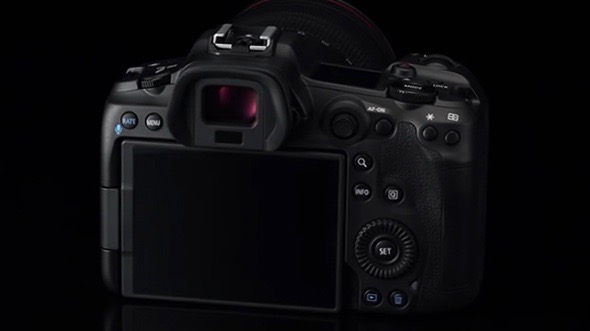
Canon EOS R5: sensor and processor
Canon has kept the sensor resolution of the EOS R5 a closely guarded secret but rumors do suggest it will be 45MP. All we know for sure, though, is that Canon is going to use a "newly designed CMOS sensor" in the new shooter.
We also know for sure that the camera is capable of 8K video capture (more on that later), meaning the camera would require a sensor with 7680 x 5120 pixels. That puts the sensor's resolution in the 40MP ballpark. We'll have to wait and see, though.
Canon has confirmed that the upcoming camera will be capable of shooting stills at 12fps bursts when using the mechanical shutter, while matching the EOS 1D X Mark III's 20fps continuous shooting speed when using the silent shutter or shooting in Live View. That's a pretty speedy camera, making it faster than the Sony Alpha A7R IV's 10fps burst speed and the Nikon Z7's 9fps, and quick enough to be used for sports and wildlife photography.
We're expecting the EOS R5 to make use of the new Digic X processor that debuted in the pro sports DSLR recently. This hasn't been officially confirmed by Canon, but given the EOS R5 offers Dual PIxel AF in all video modes and at all resolutions, it will likely need the impressive power that the Digic X offers.
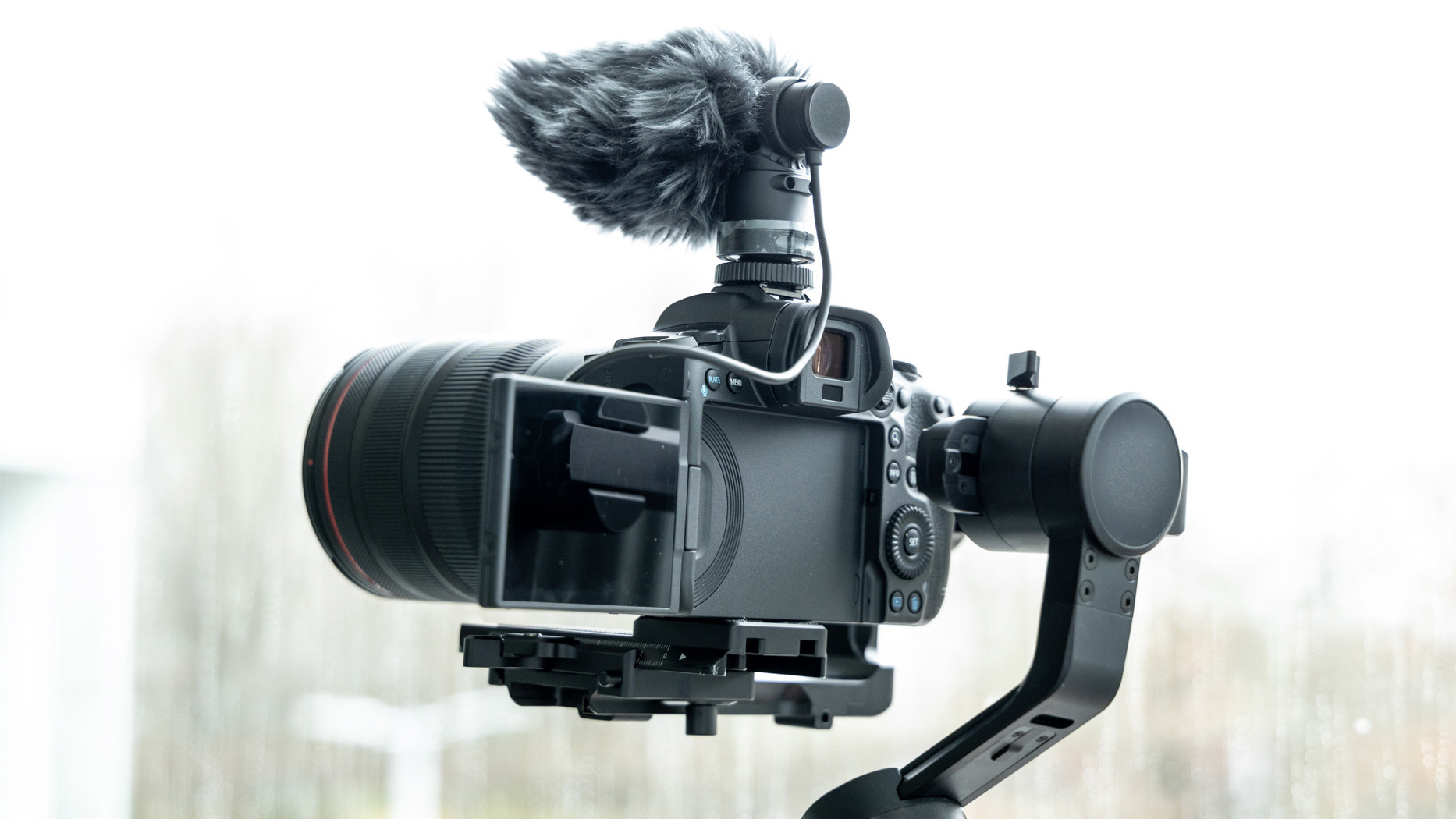
Canon EOS R5: video specs
This is the headline act: Canon has confirmed that the EOS R5 will be able to capture 8K video using the full width of its sensor. This is the first time such high resolution recording ability has made its way to a consumer-level snapper (matching the newly-announced Samsung Galaxy S20's video prowess), while it's already available on some of Canon's premium cine cameras.
According to Canon, having the ability to shoot in 8K will allow users to extract oversampled 4K video and pull "high-resolution still images from video footage".
That's not the whole video story, either. Some new announcements at its Virtual Press Conference in April revealed that the EOS R5 will also be able to shoot 4K at 120fps, for those looking to shoot professional slow-mo footage, and both 8K and 4K in 4:2:2 10-bit using Canon Log (H.265) or HDR PQ. The ability to shoot 10-bit internally is a real boon for colorists, as it gives you more color data and depth to work with in post-production.
Canon Rumors has also revealed that the EOS R5 will be able to record 8K and 4K in both DCI and UHD, covering all bases of web and cinema-like footage. According to an image published by the rumors site, supported codecs are ALL-I and IPB compressions alongside the option to shoot in RAW of course.
Even better, Canon announced that Dual Pixel AF will be available in all video modes, at all resolutions and frame rates. While many professionals will prefer the extra control of manual focusing, this is still an impressive boon, particularly for stills photographers who fancy using the EOS R5 to dabble in high-quality video shooting.
The adoption of 8K video capture, which you can also shoot in uncropped Raw at 30fps, indicates a sea change happening at Canon. It was one of the last camera makers to make 4K recording the norm in its consumer-level shooters, but now it's the first one to adopt super-high resolutions for movies.
The processing power that will be required to record 8K movies would generate a huge amount heat though, but Canon Rumors suggests overheating won't be an issue with the R5. How Canon has managed to get past this problem as yet unclear as there doesn't appear to be a heatsink built in, like the one on the Panasonic Lumix S1H.
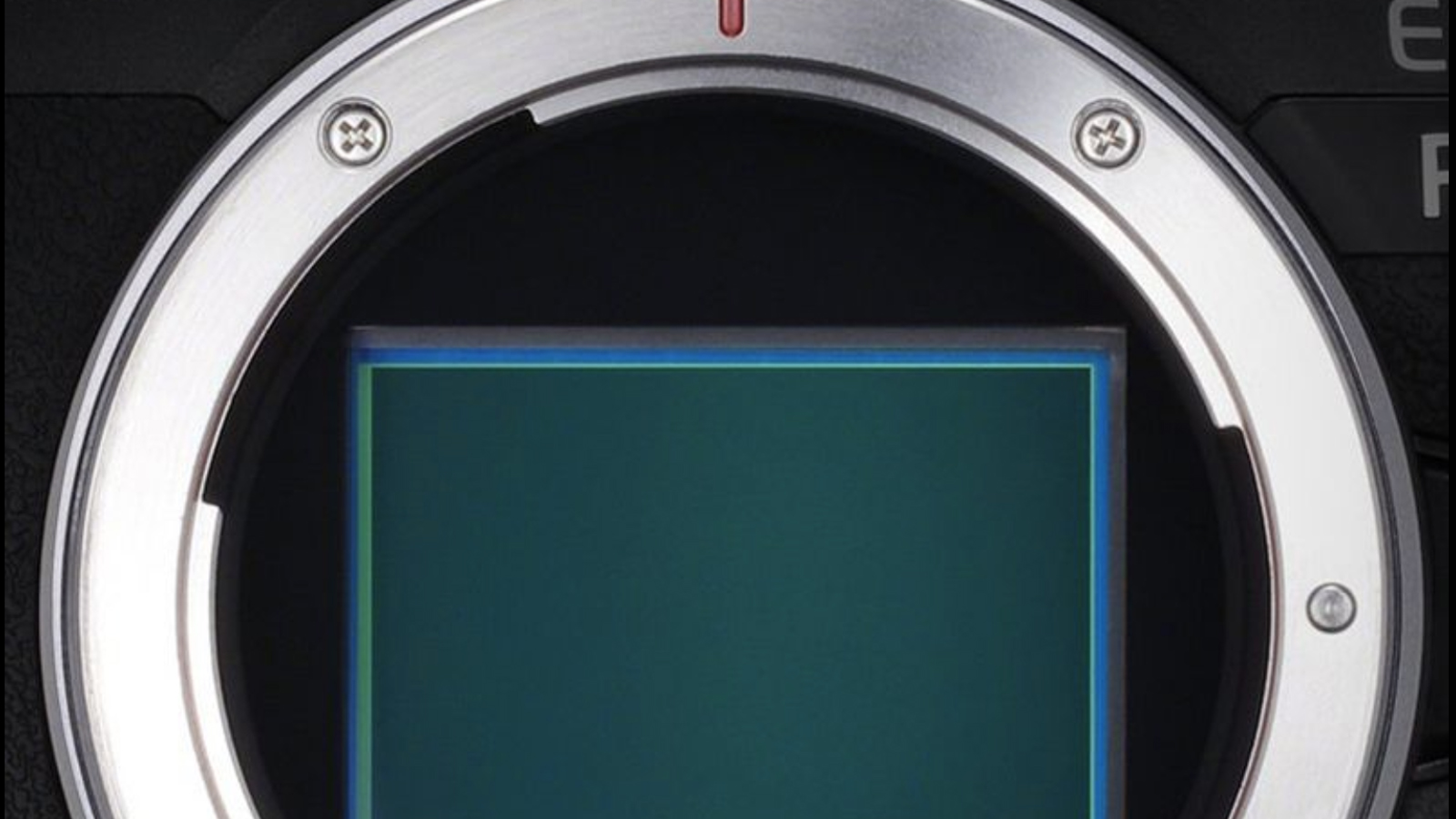
Canon EOS R5: connectivity
With both Wi-Fi and Bluetooth available in pretty much every modern camera, the R5 will definitely have both on board, with rumors suggesting the snapper will support 5GHz Wi-Fi for faster transfer speeds. We’re unsure whether the R5 will support just 5GHz wireless or whether, like the Sony Alpha A9 II, it will support both 2.4GHz and 5GHz – having both might appeal to the pros still hanging on to older gear.
While we don't even know if Canon will employ the latest Bluetooth 5.1 standard for wireless connectivity, the company has announced that users will be able to upload images in original resolution and quality directly to Canon's new Image.Canon cloud platform that will be available starting April 2020.
The EOS R5 will also feature dual card slots. Canon has announced that one of these will be CFexpress, while the other will be SD UHS-II. This differs from the 1DX Mark III, which offers dual CFexpress slots, but means you get the option of the lightning fast data transfer speeds, but aren't forced to exclusively use those very pricey cards for less demanding shooting.
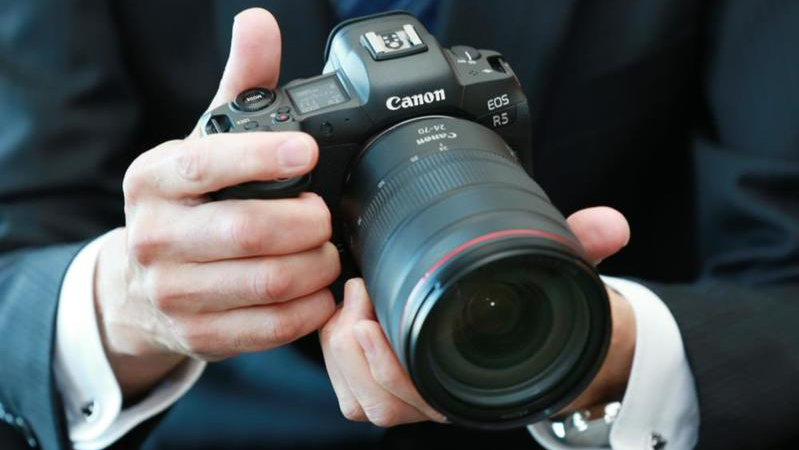
Canon EOS R5: image stabilization
Canon has, historically, shied away from adding in-body image stabilization (IBIS) to its cameras, relying on lenses that have in-built stability. What makes the R5 unique is that it will come equipped with IBIS that "will work in combination with the lens stabilization system" when using glass that comes with built-in stability.
Canon Rumors reported in January that the R5's IBIS would lend 5 stops of stability on its own, but would get bumped to "7-8 stops of correction when used with in-lens stabilization". If true, that would make handheld shooting with the R5 a dream and we can't wait to try it out for ourselves.
Canon EOS R5: what we still don't know
So that's everything we do know about the Canon EOS R5, but what are the missing pieces? While Canon has given us the broader picture, there are quite a few crucial specs that we don't know.
The most obvious is the sensor's resolution. Given the EOS R5 can shoot 8K video, we're expecting this to be in the region of 45MP, which would also put it in the sweet spot for the likes of landscape photographers.
The more crucial omissions are related to the knock-on effects of that relatively small body. For example, we don't yet know anything about battery life, or how the EOS R5 will be able to handle heat. It's likely that this will manifest in a short recording limit when shooting 8K, though we hope there's no equivalent limit on 4K recording.
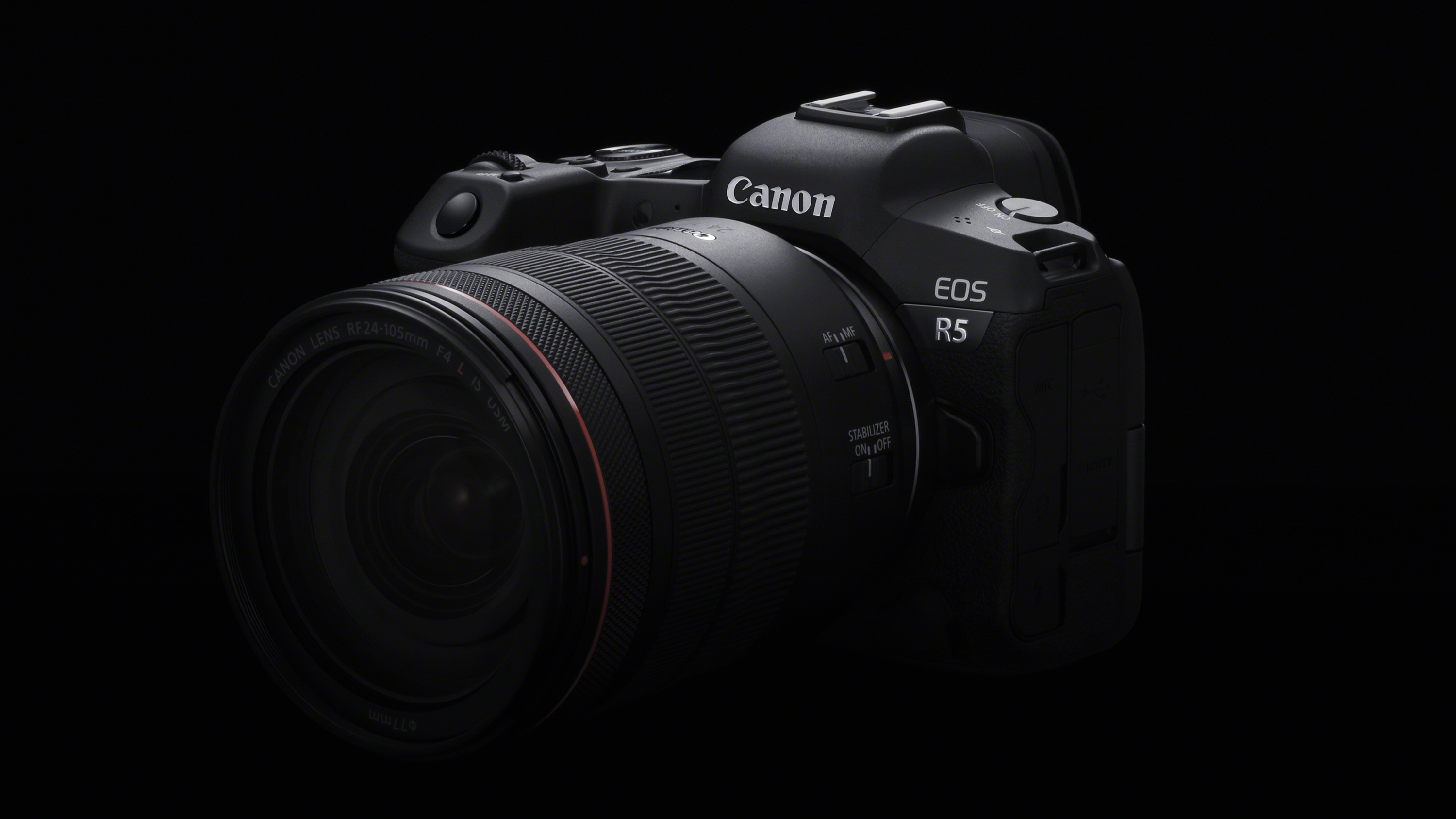
While the EOS R5's headline specs are great, it's fair to say most people will want to work with more manageable file sizes than 8K or even 4K. But so far Canon hasn't revealed anything about the camera's 1080p modes or 8-bit options to help you avoid splashing out on a huge external hard drive.
And what about stills? Well, there's no information yet on the EOS R5's ISO range, its level of weather-sealing or if it has the same Deep Learning autofocus that was introduced recently on the Canon 1DX Mark III. We know the EOS R5 will offer Animal AF, but whether this is based on Canon's Deep Learning AF remains to be seen.
In short, then, there are still quite a few unknowns when it comes to the EOS R5. There are still many questions left for Canon to answer, but we're certainly very excited by what we've seen so far. How excited? Have a read of our first look with the EOS R5, based on our first and only experience of seeing it in the flesh...
Canon EOS R5 first look
Canon EOS R5 first look: why it could be the supercar of mirrorless cameras
The EOS R5 isn’t just the most powerful full-frame mirrorless camera we’ve seen from Canon – it’s one of the most capable we’ve seen, full stop. It has in-body image stabilization (IBIS), shoots 8K video with no crop, and rattles off photos at 20fps in burst mode. For everyone from wildlife shooters to wedding photographers, it could be the photographic supercar they’ve been waiting for.
While we haven't yet seen a working Canon EOS R5 in action, we were able to see one in the flesh at Canon's UK head office. This helped us tease out a few extra details for this first look with a camera that promises to upgrade Canon from mirrorless also-ran to genuine trailblazer…
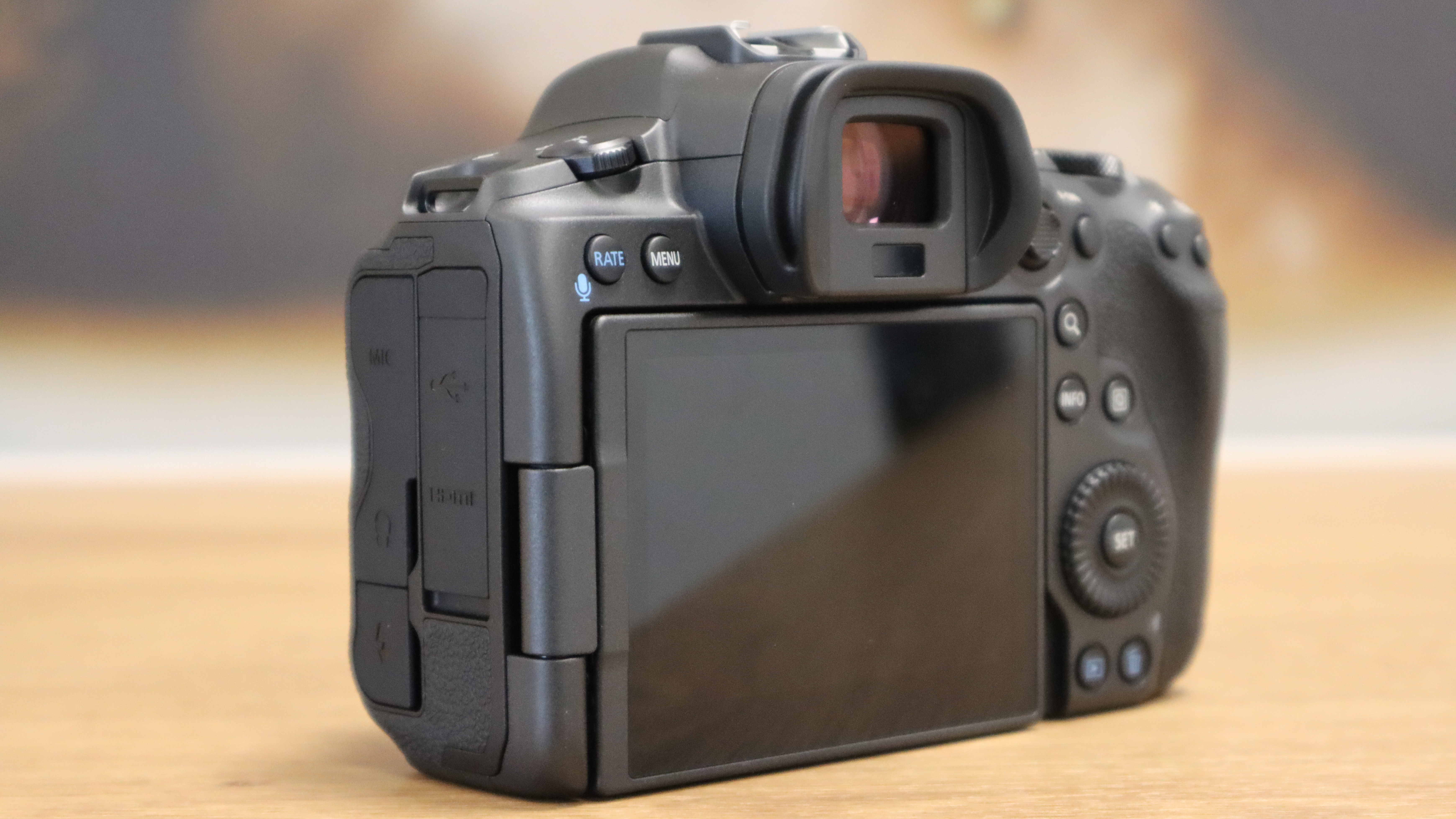
Golden child
As you’d expect, there are a lot of physical similarities between the Canon EOS R5 and the company’s original full-frame mirrorless camera, the EOS R.
The button layout on the top plate is identical, including a top-plate LCD screen that we enjoyed on the EOS R. And while the body is certainly thicker, it’s not as big a difference as you might imagine, considering the EOS R5 also has in-body image stabilization (IBIS).
It’s the rear of the R5, though, that reveals that this is a Canon 5-series camera. Canon’s 5D DSLRs evolved into popular all-rounders, without forgetting their core fanbase – and the EOS R5 has a comfortably familiar array of rear controls.
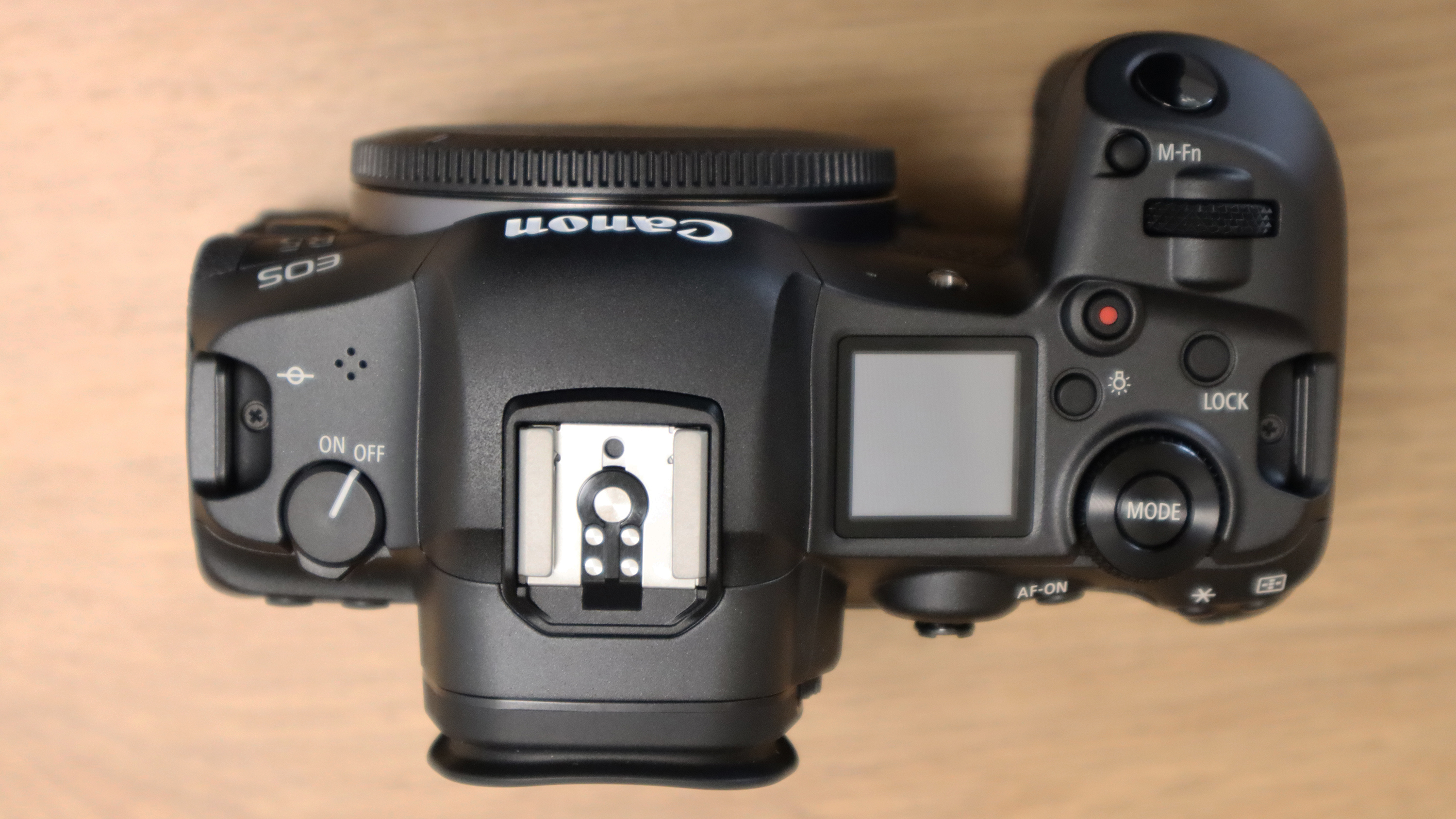
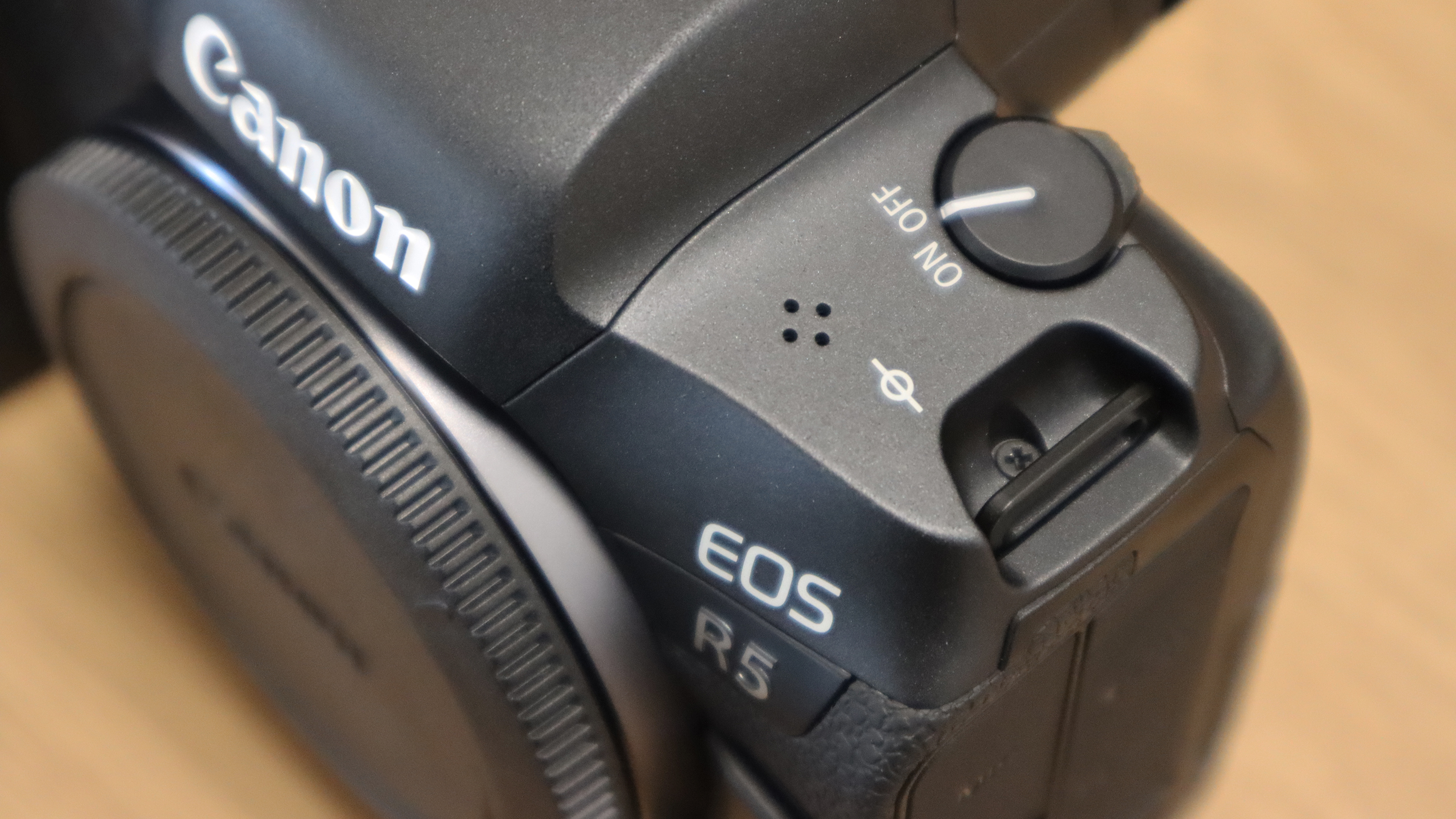
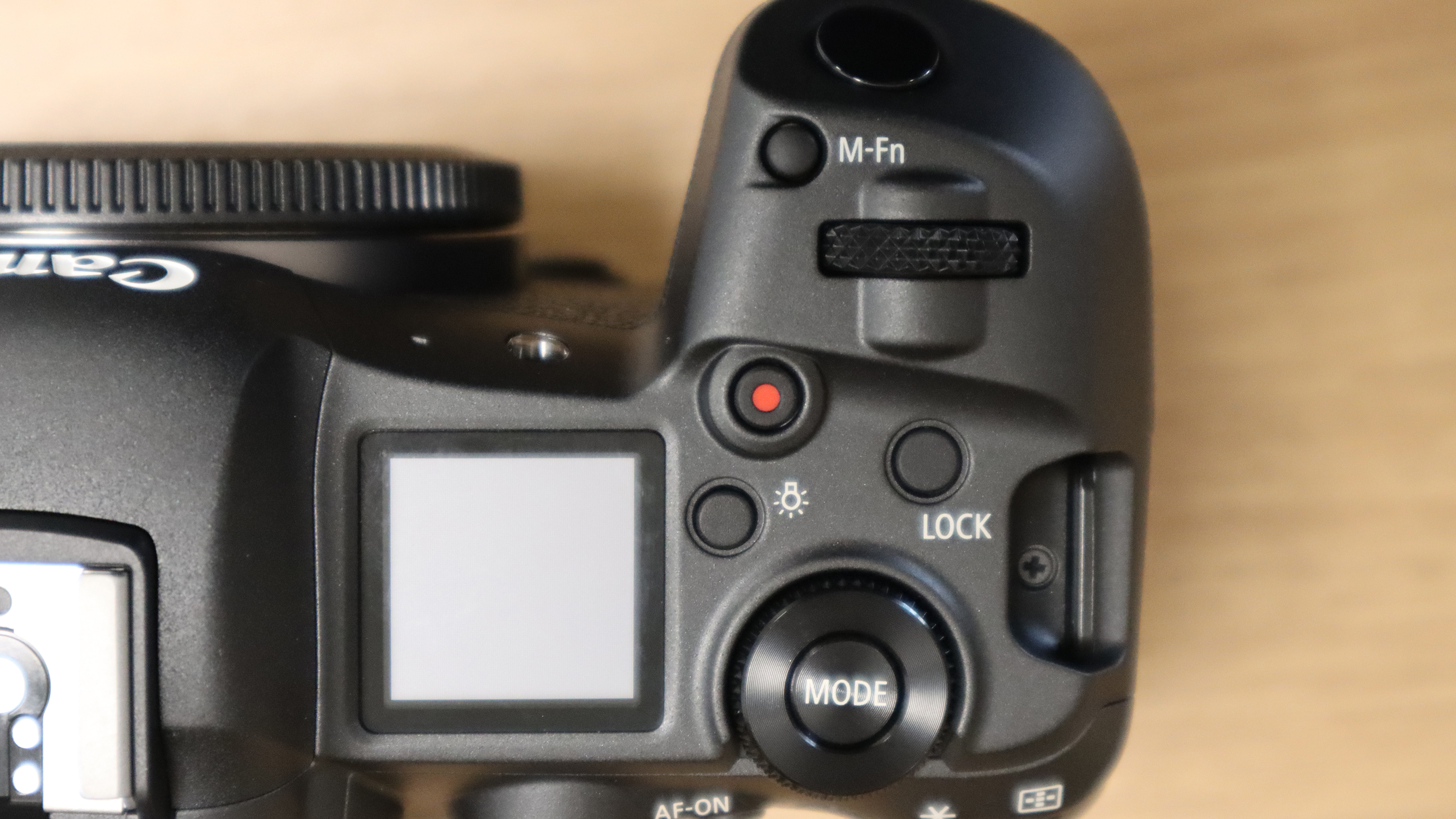
These include a dedicated ‘rate’ button (for picking out images as ‘keepers’ while you’re still out on shoot), a similar control wheel to the one found on the 5D Mark IV and, most interestingly, an AF joystick. This replaces the EOS R’s controversial M-Fn (multi-function) touchbar, which received something of a mixed response.
In other ways, the EOS R5 appears to be a blend of the best bits from a 5D Mark IV and the EOS R. Unlike the latter, you get dual card slots (although we’re not yet sure what type), while a boost over the 5D Mark IV is the inclusion of a vari-angle touchscreen.
This is, then, very much a mirrorless interpretation of Canon’s DSLR cameras, with some comfortably familiar controls mixed with modern features and, no doubt, a very high-resolution EVF. In fact, it could well be the best of both worlds.
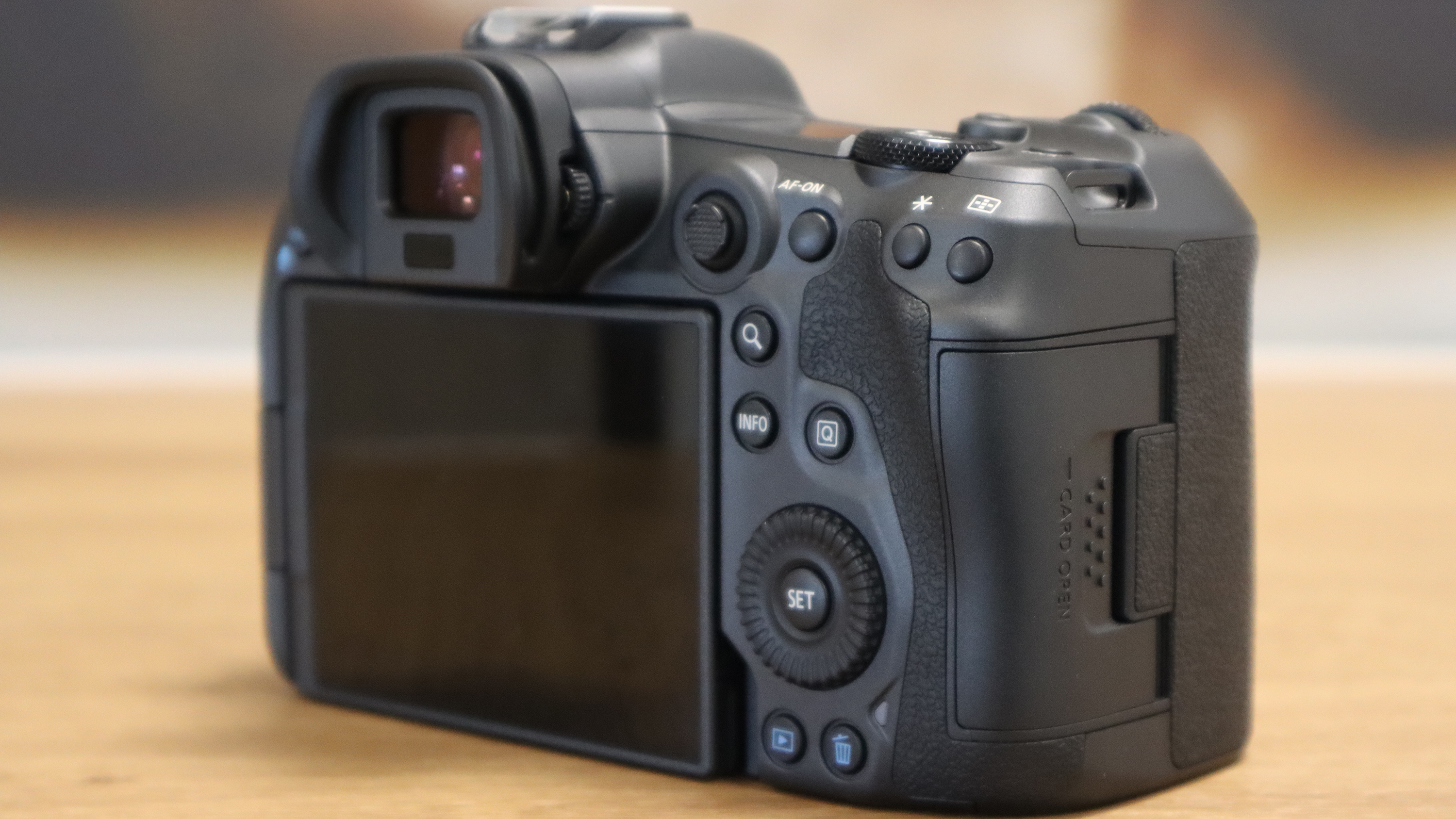
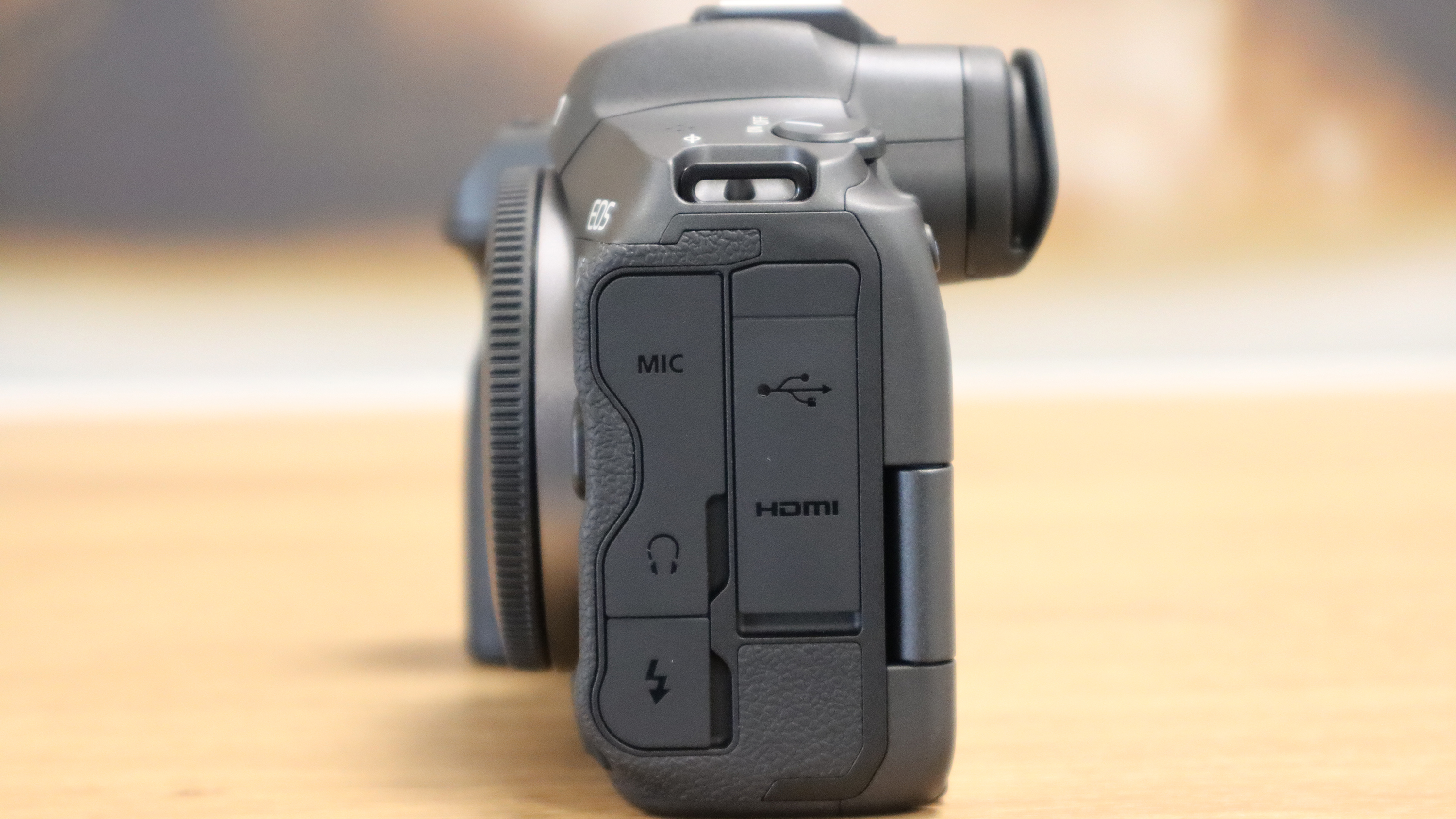
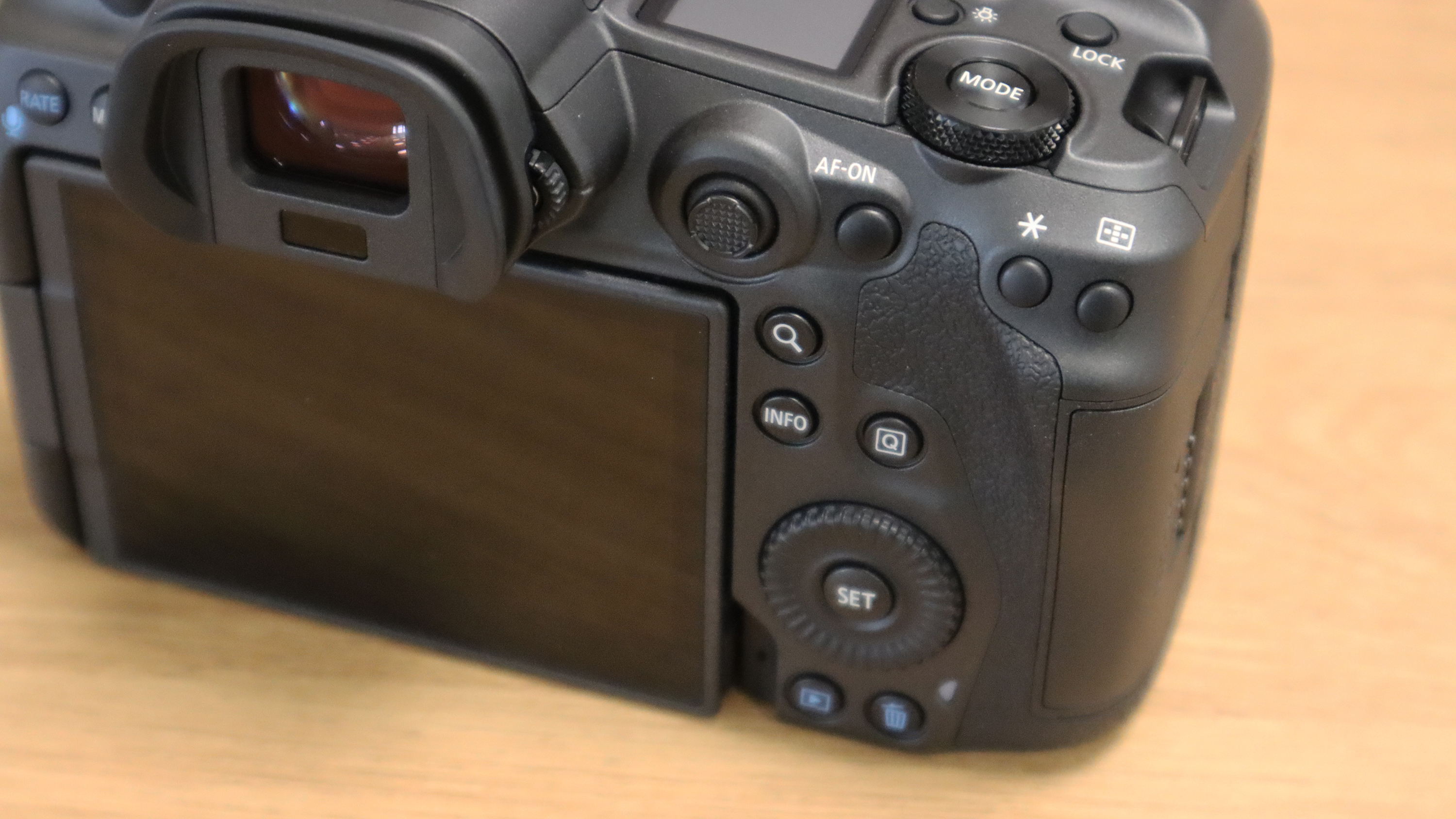
New Canon tricks
We haven't yet seen a working Canon EOS R5 in action, so it's difficult to make too many conclusions about its performance. But Canon has recently started talking about its features in a little more detail.
One of the main ones is video. Canon's 5-series – most notably, the Canon EOS 5D Mark II – did a lot to push video forward on DSLRs, but on the flipside the company also garnered a reputation for placing frustrating limitations on the video functionality of its mirrorless cameras. So much so, this practice has become known as Canon's 'cripple hammer'.
This time, Canon has made an almost indignant defense of the EOS R5's 8K video powers. A recent Canon press release said it was "shutting down speculation" that some specs are supposedly impossible, by confirming that the EOS R5 will be able to shoot 8K/30p video using the full width of the sensor (in other words, with no crop), with Dual Pixel AF in all modes.
Even if some details still aren't known – such as if the Animal Eye AF will also be available in video as well as stills – this is hugely impressive and makes the EOS R5 a genuinely exciting prospect for both videographers and stills photographers. With professional snappers increasingly expected to be able to offer both high-quality stills and video, this makes a lot of sense.
Talking of stills, the EOS R5 is capable of burst shooting at 12fps with the mechanical shutter or at 20fps when using the electronic shutter in Live View. The latter matches the shooting power of the far bigger Canon 1DX Mark III, marking the EOS R5 out as a genuine option for sports shooters too, assuming the autofocus can keep up.
On that front, Canon is promising a new Animal Eye AF mode that can apparently recognize dogs, cats and birds (which is a rather large category) by their eyes, faces and body shapes. This sounds suspiciously like it's built on the Deep Learning AF tech that was introduced on the 1DX Mark III, but Canon couldn't confirm this yet.

The missing pieces
There's still a lot we don't know about the Canon EOS R5, including its sensor's resolution, the extent of its weather-sealing, and its price tag. And yet it's hard to escape the admittedly premature conclusion 'they've finally done it'.
With an expected price tag of at least $3,500 / £3,500 / AU$4,500, the EOS R5 is by no means a mainstream camera. It will be for professional photographers of all stripes, or well-heeled amateurs who want the latest tech.
But what's more exciting is what this camera represents, which is Canon finally coming out of its shell to become the life and soul of the mirrorless party, thanks to its quickly maturing RF system.
That system already has ten lenses, including the 'Holy Trinity' triumvirate of f/2.8 zooms (the RF 15-35mm f/2.8, RF 24-70mm f/2.8 and RF 70-200mm f/2.8), which have the tagline "every professional assignment covered". The EOS R5 is exactly the kind of camera they were built for – we look forward to taking them for a spin together soon.

No comments:
Post a Comment